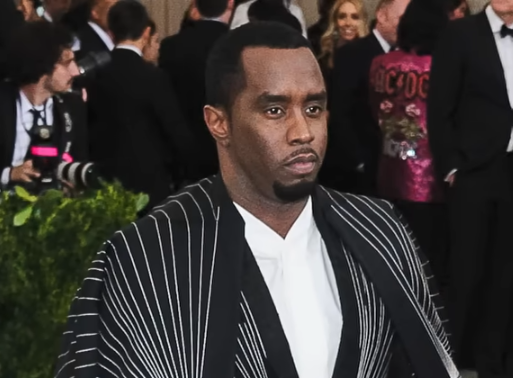Sean Combs has gone through one of the most glaringly dramatic reversals in the history of entertainment wealth in the last few years. Once earning $100 million annually, Combs was once regarded as hip-hop’s most credible billionaire-in-waiting. Today, he is working to preserve the remnants of an empire that once included media holdings, fashion, and spirits. His reputation was now mired in legal controversy, brand collapses, and lawsuits caused his net worth to plummet to $400 million by 2025.

Utilizing astute marketing agreements, especially his collaboration with Diageo beginning in 2007, Combs established a revenue stream that was remarkably successful in transforming Cîroc from a near-obscurity to one of the leading vodka brands in the world. Later, he became a leading figure in celebrity liquor entrepreneurship when he and Diageo jointly bought DeLeón tequila in 2013. According to 2023 court documents, Diageo had paid him more than $1 billion over sixteen years, which was much more than the total amount he had earned from his music career. But he walked away with a $200 million payout for his share after a falling out that led to the relationship’s termination in early 2024.
| Category | Details |
|---|---|
| Full Name | Sean John Combs |
| Known As | Puff Daddy, P. Diddy, Diddy, Brother Love |
| Date of Birth | November 4, 1969 |
| Age | 55 |
| Birthplace | New York City, United States |
| Occupations | Rapper, Record Producer, Entrepreneur, Television Producer |
| Active Years | 1990–2024 |
| Net Worth (2025) | $400 million |
| Peak Net Worth | Just under $900 million (2020) |
| Major Ventures | Bad Boy Records, Sean John, Cîroc, DeLeón, Revolt TV |
| Number of Children | 7 (including Christian “King” Combs) |
| Legal Status | Incarcerated at MDC Brooklyn (pending charges) |
| Recent Allegations | Sexual assault, trafficking, public fallout |
| Former Partners | Kimberly Porter, Cassie Ventura, Yung Miami |
| Home Ownership | Alpine, New Jersey ($7 million) |
| Art Collection | “Past Times” by Kerry James Marshall ($21 million) |
| Source |
Once a mainstay of urban fashion, Sean John has almost completely disappeared from retail visibility in recent days. In the past, the brand, which was especially well-liked in the 2000s, brought Combs a CFDA award and generated hundreds of millions of dollars in revenue annually. However, the brand’s future fell apart as accusations of sexual assault gained widespread attention and sparked boycotts. Sean John was taken off store shelves by retailers, and designers shied away from what had come to represent fallen grace.
By establishing a platform with editorial independence and a community focus, Combs aimed to transform Black culture in media through Revolt TV, a network that was established in 2012. However, he gave up ownership after being indicted by the federal government in late 2024. Revolt is still in business, but it is now set up as an employee-owned enterprise. Industry insiders pointed out that Combs’ financial stake had shifted from being strategic to symbolic, making the exit a damage control tactic rather than a well-thought-out sale.
Combs was once regarded as having a very clear branding vision and had skillfully positioned himself as a streetwise businessman and a tycoon who was well-versed in politics, art, and high fashion. Not only did he break records when he paid $21 million for Kerry James Marshall’s “Past Times” in 2018, but he also sent a cultural message about Black wealth and artistic power. However, that symbolism seems fading in the wake of his arrest and the federal charges that followed, as court headlines and industry exits take its place.
In the beginning, Combs had established a particularly inventive financial legacy by fusing his musical talent with business acumen. His first album, “No Way Out,” was a multi-platinum homage to The Notorious B.I.G. that emotionally resonated with listeners in addition to being a chart-topper. His commercial presence was maintained by albums like “Forever” and “Press Play,” while his Dirty Money project, “Last Train to Paris,” demonstrated his experimentation with genre blending. But even though his music was successful, his legacy was defined by his non-musical endeavors—until they weren’t.
Although his ascent served as motivation for nascent business owners, his decline serves as a particularly sobering lesson. It demonstrates how creating an empire that spans numerous industries is both highly adaptable and intrinsically brittle. Scandal or legal entanglements can topple one domino, causing an industry-wide collapse.
Combs’ family life has given his brand additional depth over the years. Frequently presented as a provider and cultural elder, he was the father of seven children, including the upcoming rapper King Combs. Sean and Christian were portrayed as a generational success when they became the first father-son team to simultaneously top the Billboard and Urban Radio charts in November 2022. But as both supporters and detractors consider the discrepancy between public persona and private behavior, that narrative has also become more somber.
In the 2010s, Combs became a multihyphenate artist, producer, and CEO by diversifying aggressively. Kanye West, Dr. Dre, and Jay-Z all took comparable routes; Dre is still making money off Beats, while Jay-Z currently has the most stable portfolio. Despite its own struggles, Kanye’s empire is still going strong. In contrast, Combs’ organization now seems noticeably dismantled—an empire that grew too quickly and lacked the stability to stand up to close examination.
Combs was selling aspiration rather than just vodka or music by fusing luxury branding with street cred. His investments in Black-owned startups, his yearly white parties in the Hamptons, and his Harlem heritage were all intended to exude excellence, confidence, and hustle. However, these same traits are now working against him, especially his command of attention. His downfall is being illuminated by the same spotlight that once magnified his victories.
His decline has felt both symbolic and personal in light of recent celebrity reckonings. The music industry is now reassessing its standards after previously being sluggish to hold influential men accountable. Sponsors are now extremely sensitive to public opinion, and companies that were once quick to align themselves with charismatic celebrities now put safety and alignment ahead of notoriety. Once the gold standard of the industry, Combs now acts as a barometer for the extent of that change.
Sean Combs’ wealth looks to be in jeopardy due to unresolved legal proceedings by the middle of 2025. His finances are no longer very effective growth engines because there are no active endeavors generating new revenue and there are large liabilities hanging over him. He is instead depending on the remaining value of previous agreements, which include residual music royalties, art holdings, and real estate.
However, history demonstrates that cultural icons seldom fade in silence. Whether it’s through slow-burning nostalgia, reinvention, or redemption, they frequently manage to regain the public’s favor. However, Combs now faces a longer journey and a more profound trust deficit. His tale has evolved from an inspirational blueprint to a warning epic, showing how not being held accountable can quickly turn into notoriety.
